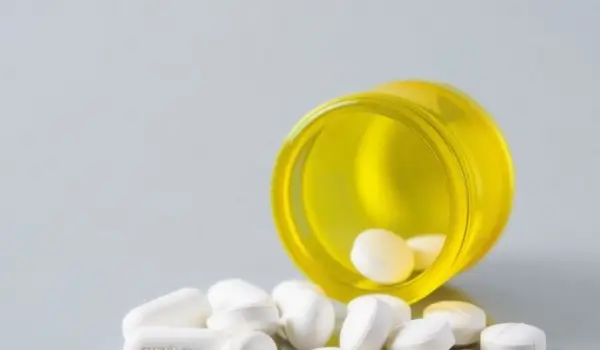Introduction
Erectile dysfunction (ED) affects millions of men worldwide, impacting not only physical health but also emotional well-being and relationships. While medications like Viagra are commonly prescribed, emerging research suggests that aspirin, a widely used over-the-counter drug, might offer benefits for certain types of ED, particularly those related to vascular health.
This article delves into the potential role of aspirin in treating ED, examining appropriate dosages, underlying mechanisms, and the latest scientific findings.

Understanding Erectile Dysfunction
Definition and Overview
Erectile dysfunction is defined as the consistent inability to achieve or maintain an erection sufficient for satisfactory sexual performance. It can result from a combination of physical and psychological factors, including vascular disease, neurological disorders, hormonal imbalances, and emotional issues.
Causes and Risk Factors
Common causes and risk factors for ED include:Frontiers
- Cardiovascular diseases: Conditions like atherosclerosis can impede blood flow to the penis.PMC
- Diabetes: High blood sugar levels can damage nerves and blood vessels.
- Hypertension: High blood pressure can affect blood vessel health.
- Obesity: Excess weight can lead to hormonal changes and vascular problems.
- Smoking and alcohol use: Both can damage blood vessels and reduce blood flow.
- Psychological factors: Stress, anxiety, and depression can contribute to ED.
Underlying Mechanisms
Erections are primarily a vascular event, initiated by the relaxation of smooth muscles in the penile arteries and corpus cavernosum, leading to increased blood flow. Nitric oxide (NO) plays a crucial role in this process by promoting vasodilation. Conditions that impair NO production or endothelial function can lead to ED.SAGE Journals
Aspirin and Erectile Dysfunction
How Aspirin Works
Aspirin (acetylsalicylic acid) is a nonsteroidal anti-inflammatory drug (NSAID) that irreversibly inhibits cyclooxygenase (COX) enzymes, particularly COX-1 and COX-2. This inhibition reduces the synthesis of prostaglandins and thromboxane A2, leading to decreased inflammation and platelet aggregation. By preventing platelet clumping, aspirin enhances blood flow, which is essential for achieving and maintaining erections. amj.journals.ekb.egOregon Urology ClinicSAGE Journals
Clinical Evidence
Several studies have investigated the efficacy of aspirin in treating ED:Frontiers+3Oregon Urology Clinic+3SAGE Journals+3
- Randomized Controlled Trials: A meta-analysis of two randomized controlled trials involving 214 men with vasculogenic ED found that aspirin significantly improved erectile function compared to placebo. The mean difference in International Index of Erectile Function (IIEF) scores was 5.14 points. PubMed+3PubMed+3SAGE Journals+3PubMed+3PMC+3PubMed+3
- Prospective Studies: A study with 184 men diagnosed with vasculogenic ED showed that daily administration of 100 mg aspirin for six weeks led to significant improvements in IIEF scores and sexual encounter profile responses compared to placebo. PubMed
- Combination Therapies: Research comparing aspirin, tadalafil (a PDE5 inhibitor), and their combination found that all treatments improved erectile function. However, the combination therapy yielded the most significant improvements with fewer side effects. PubMed
Potential Mechanisms
Aspirin may improve erectile function through several mechanisms:amj.journals.ekb.eg
- Enhanced Endothelial Function: By increasing NO availability, aspirin promotes vasodilation.
- Anti-inflammatory Effects: Reducing inflammation can improve vascular health.
- Antiplatelet Activity: Preventing platelet aggregation enhances blood flow.
Appropriate Aspirin Dosage for ED
The studies mentioned above primarily utilized a daily dose of 100 mg aspirin. This low-dose regimen is commonly used for cardiovascular protection and appears to be effective in improving erectile function in men with vasculogenic ED. However, it’s essential to consult a healthcare provider before starting aspirin therapy, as individual health conditions and risk factors must be considered.
Safety Considerations
While aspirin is generally safe at low doses, potential side effects include:
- Gastrointestinal issues: Such as ulcers and bleeding.
- Increased bleeding risk: Due to its antiplatelet effects.PubMed+9PMC+9amj.journals.ekb.eg+9
- Allergic reactions: In individuals sensitive to NSAIDs.
Long-term use should be monitored by a healthcare professional, especially in individuals with a history of gastrointestinal bleeding or those taking other medications that increase bleeding risk.
Comparing Aspirin to Other ED Treatments
While aspirin shows promise, it’s essential to compare it with established ED treatments:Oregon Urology Clinic
- PDE5 Inhibitors (e.g., Viagra, Cialis): These are first-line treatments for ED, effective in many men but can have side effects and are contraindicated with certain medications.
- Lifestyle Modifications: Improving diet, increasing physical activity, quitting smoking, and reducing alcohol intake can enhance erectile function.
- Psychological Counseling: Addressing underlying psychological issues can be beneficial.
Aspirin may be considered as an adjunct therapy, particularly in men with vascular risk factors, but more extensive research is needed to establish its efficacy and safety profile fully.
Frequently Asked Questions
Does aspirin work like Viagra?
No, aspirin and Viagra work through different mechanisms. Viagra enhances the effects of NO by inhibiting PDE5, leading to increased blood flow to the penis. Aspirin, on the other hand, prevents platelet aggregation and may improve endothelial function, which can indirectly benefit erectile function.
Can 81 mg aspirin improve erectile dysfunction?
Some studies have used 100 mg doses, which is close to the commonly available 81 mg low-dose aspirin. While this suggests potential benefits, it’s essential to consult a healthcare provider before starting any new medication regimen.
Does aspirin help sexually?
Aspirin may improve sexual function in men with ED related to vascular issues by enhancing blood flow. However, it is not a sexual stimulant and does not directly increase libido.
Does aspirin make you last longer in bed?
There is no evidence to suggest that aspirin affects ejaculation timing or sexual stamina. Its potential benefits are related to improving blood flow, which may aid in achieving and maintaining erections.
Can aspirin cause erectile dysfunction?
While some studies suggest a potential association between long-term aspirin use and ED, the evidence is not conclusive. The benefits and risks should be weighed on an individual basis with a healthcare provider.
Conclusion
Aspirin’s role in treating erectile dysfunction, particularly of vascular origin, is an area of growing interest. Low-dose aspirin may offer benefits by improving endothelial function and blood flow. However, more extensive, long-term studies are needed to fully understand its efficacy and safety in this context. Men considering aspirin for ED should consult their healthcare providers to discuss potential benefits and risks based on their individual health profiles.
Note: This article is for informational purposes only and does not constitute medical advice. Always consult a healthcare professional before starting any new treatment.
